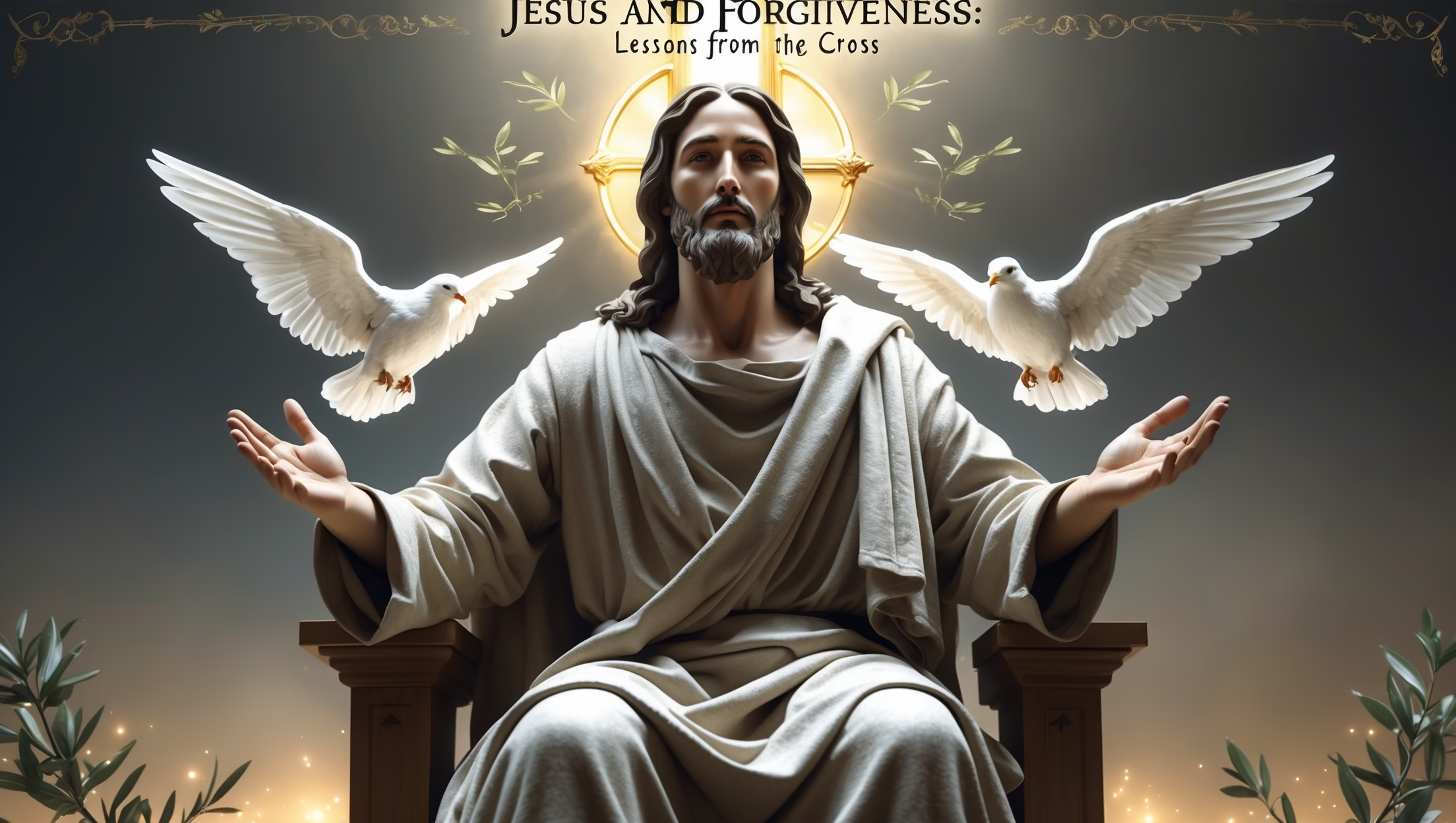Introduction
At the heart of Jesus’ mission was forgiveness. Nowhere is this more evident than on the cross, where He prayed, “Father, forgive them, for they know not what they do.” This moment revealed not only His divine mercy but also the core of the Christian message—reconciliation between God and humanity through grace. Forgiveness was not an occasional act for Jesus; it was a consistent theme in His life, teaching, and sacrificial death. His words and actions demonstrate the depth of God’s mercy and provide a timeless model for humanity.
Jesus Forgave Sinners Freely
One of the most radical aspects of Jesus’ ministry was His authority to forgive sins. This authority was not symbolic or limited to ritual practices; it carried divine weight. To the paralytic who was lowered through the roof, He declared, “Your sins are forgiven,” sparking controversy among religious leaders who believed only God could forgive. Yet Jesus proved that His mission was to bring complete restoration—both physical and spiritual.
When confronted with the woman caught in adultery, Jesus’ response shattered the rigid legalism of the Pharisees. Instead of condemning her, He said, “Neither do I condemn you. Go and sin no more.” This act of mercy emphasized that forgiveness is not a license to continue in sin but an invitation to transformation. His willingness to forgive showed the radical inclusiveness of God’s love. Jesus forgave sinners freely, regardless of their social standing or failures, extending grace to tax collectors, prostitutes, and outcasts. His forgiveness redefined holiness—not as separation from sinners but as restoration through compassion.
Forgiveness at the Cross
The climax of Jesus’ ministry came at Calvary, where His words, “Father, forgive them,” resounded through history. On the cross, Jesus’ forgiveness was not directed at friends or loyal disciples but at the very ones who mocked, tortured, and crucified Him. This was forgiveness without condition, forgiveness that reached beyond human comprehension.
Jesus on the cross forgiveness demonstrates love without boundaries. Instead of retaliating or condemning, He absorbed humanity’s sin and responded with mercy. This act revealed that forgiveness is not dependent on the offender’s repentance but flows from the heart of God. His prayer was not only for the Roman soldiers or Jewish leaders but for all of humanity—past, present, and future—who played a part in sin’s burden. In this, the cross became the ultimate demonstration of unconditional love.
The Cost of Forgiveness
True forgiveness is not cheap. While words may seem simple, the act of forgiving requires sacrifice, humility, and deep strength. For Jesus, forgiveness was not a casual statement; it was the purpose of His suffering and death. He bore the full weight of humanity’s guilt, shame, and rebellion.
In enduring the cross, Jesus showed that forgiveness involves bearing the cost that others cannot pay. His sacrifice illustrates that genuine forgiveness is not dismissing sin or ignoring justice but taking responsibility to restore what has been broken. The shedding of His blood was the cost of reconciliation, reminding believers that mercy is powerful because it is costly. Through this, Jesus forgave sinners at the highest personal price, setting the standard for selfless love.
Jesus’ Teaching on Forgiveness
Jesus not only demonstrated forgiveness but also commanded it as a way of life. In response to Peter’s question about how many times to forgive, Jesus said, “Seventy times seven.” This number symbolized limitless forgiveness, calling His followers to embody God’s endless mercy.
In the Lord’s Prayer, He taught believers to ask for forgiveness in the same measure that they extend it to others: “Forgive us our debts, as we also have forgiven our debtors.” Forgiveness, according to Jesus, is not optional for those who follow Him; it is essential to discipleship.
The parable of the unforgiving servant illustrates this principle. Though forgiven a massive debt, the servant refused to forgive a small one. Jesus used this story to highlight the hypocrisy of receiving God’s mercy without extending it to others. Jesus teaching forgiveness reveals that forgiveness is not based on feelings but on obedience, reflecting God’s character through daily choices.
Forgiveness Today
The lessons of the cross remain relevant in a world filled with conflict, resentment, and brokenness. Forgiveness has the power to heal relationships, restore communities, and free individuals from the heavy chains of bitterness. Modern psychology even supports what Jesus taught centuries ago—those who forgive experience lower stress, improved health, and greater emotional well-being.
Forgiveness is not easy, especially in cases of deep betrayal, abuse, or injustice. Yet, following Jesus means embracing forgiveness even when it feels undeserved. Choosing to forgive does not mean excusing wrong behavior but choosing freedom over resentment.
In families, friendships, workplaces, and societies, forgiveness creates space for reconciliation and peace. It reflects God’s love in tangible ways. By extending mercy to others, believers participate in the same grace that Jesus displayed on the cross. Jesus forgiveness lessons remind Christians that the call to forgive is not only about moral duty but about embodying the heart of God in everyday life.
Conclusion
The cross is the ultimate lesson in forgiveness. Through Jesus’ life, teachings, and sacrificial death, we see forgiveness in its purest form—undeserved, unconditional, and transformative. Jesus forgave sinners freely, taught forgiveness as a way of life, and ultimately demonstrated it on the cross at the greatest personal cost.
His example calls all believers to live lives marked by mercy. To forgive is to follow Jesus, to reflect the grace of God, and to bring healing into a broken world. In embracing forgiveness, Christians not only receive freedom but also extend it to others, continuing the legacy of love that began at the cross.








